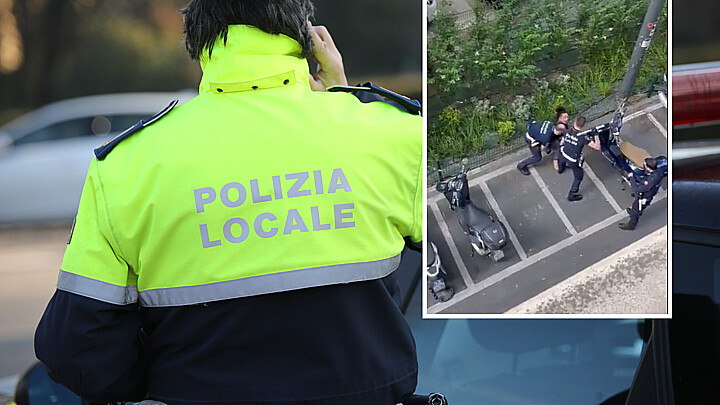Trending
Pope Francis draws cheers for Ukraine on 'Easter of war'
In his first public Easter since the COVID-19 pandemic began in 2019, the 85-year-old pope spoke to 50,000 people during a Mass that aimed to hold Russia responsible for thrusting Ukraine into a “cruel and senseless” war
April 17, 2022 9:21am
Updated: April 17, 2022 10:08am
Pope Francis declared an “Easter of war” in a moving address to thousands in St. Peter’s Square from the Vatican on Sunday, condemning Russia’s illegal invasion of Ukraine and calling for peace in the bloody conflict.
In his first public Easter since the COVID-19 pandemic began in 2019, the 85-year-old pope spoke to 50,000 people under a blue, sun filled sky during a Mass that aimed to hold Russia responsible for thrusting Ukraine into a “cruel and senseless” war.
Upon mention of Ukraine during his Sunday address, the crowd of tens of thousands erupted into applause.
“We have seen all too much blood, all too much violence,” he said. “Our hearts, too, have been filled with fear and anguish, as so many of our brothers and sisters have had to lock themselves away to be safe from bombing… let us all commit ourselves to imploring peace, from our balconies and in our streets. May the leaders of nations hear people’s plea for peace.”
He said Ukraine was “sorely tried by the violence and destruction of the cruel and senseless war into which it was dragged,” and called for an end to the violence. “Let there be a decision for peace. May there be an end to the flexing of muscles while people are suffering.”
In a direct reference to Ukrainians struggling to survive Russia’s invasion, he condemned the Kremlin's merciless bombings that have rained down across the embattled country.
“Our eyes, too, are incredulous on this Easter of war. We have seen all too much blood, all too much violence. Our hearts, too, have been filled with fear and anguish, as so many of our brothers and sisters have had to lock themselves away in order to be safe from bombing,” he said.
The pope also commended those European nations that have welcomed Ukrainian refugees, adding that all nations should welcome other immigrants and refugees in need.
“I see the faces of the orphaned children fleeing from the war. As we look at them, we cannot help but hear their cry of pain, along with that of all those other children who suffer throughout our world, those dying of hunger or lack of medical care, those who are victims of abuse and violence, and those denied the right to be born.”
In addition to calling for peace in Ukraine, Francis heralded the global community to reject war as the norm, calling for an end to conflict in the Middle East and Africa.
“Please, let us not get used to war!” he said. “Let us all commit ourselves to imploring peace, from our balconies and in our streets! May the leaders of nations hear people’s plea for peace… I hold in my heart all the many Ukrainian victims, the millions of refugees and internally displaced persons, the divided families, the elderly left to themselves, the lives broken and the cities razed to the ground,” he said.
In a clear reference to nuclear war, Francis quoted from a declaration of Albert Einstein and other scientists in 1955, asking, “Shall we put an end to the human race, or shall mankind renounce war?”
Francis read most of the "Urbi et Orbi" from the balcony while sitting due to a recovering knee injury, and only stood when he started speaking and for the final blessing. After Mass he used his open white popemobile to engage with the crowd flooding the streets.
On Saturday, three Ukrainian lawmakers and the mayor of Melitopol, Ivan Fedorov, who was abducted by Russian forces and released in a recent prisoner exchange attended the pope’s Easter vigil service on Saturday, in which he prayed for each of them.
“In this darkness that you are living, Mr. Mayor, parliamentarians, the thick darkness of war, of cruelty, we are all praying with you and for you this night,” he said, addressing them.
The day before on Friday, Francis’s Good Friday sermon at the Roman Colosseum called for a cease-fire as faith leaders from both countries carried a cross together.
He closed his Sunday address by saying that peace was not an option, but rather a moral obligation and call to action.
“Peace is possible, peace is a duty, peace is everyone’s responsibility,” he declared.







